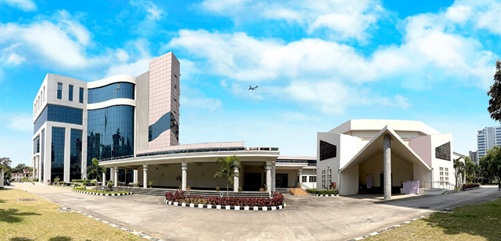The year 2025 marks the 80th anniversary of the establishment of the Anthropological Survey of India (AnSI).

About Anthropological Survey of India
Introduction
- Anthropological Survey of India (AnSI) is a premier research organization under the Ministry of Culture, Government of India.
- It focuses on physical and cultural studies in the field of anthropology, especially on indigenous and vulnerable communities.
- Its goal is to understand, preserve and document the cultural and biological diversity of India.
Establishment
- Formed: In 1945 in Varanasi; headquarters moved to Kolkata in 1948.
- Background: The Zoological Survey of India was formed in 1916 from the branches of the Indian Museum, from which AnSI was separated in 1945.
- First Director: Biraja Shankar Guha; Deputy Director: Verrier Elwin
- Completes 80 years by 2025; Leading Institute in Anthropology
Objectives
- Study of bio-cultural aspects of tribes and communities
- Conservation and documentation of vulnerable tribes (PVTGs)
- Collection and study of ethnographic materials and human remains
- Scientific research on human evolution and cultural traditions
- Data and suggestions for policy making
- Promoting cultural integration
Office
- Headquarters: Kolkata (Indian Museum Complex)
- Regional Centres: Shillong, Dehradun, Udaipur, Nagpur, Mysore, Port Blair, Kolkata
- Sub-regional Centre: Jagdalpur (Chhattisgarh)
Main Functions
- Research: Physical (biological diversity) and Cultural Anthropology (traditions, customs)
- Collection and conservation: ethnographic materials and ancient remains
- Publications: Research papers, books, Journal of the Anthropological Survey of India
- Community studies: Focus on PVTGs; Policy Suggestions
- Cultural Documentation: Digital and Written Documentation
Major Achievements
- Research on 700+ tribes and 75 PVTGs
- 'People of India' project: Documentation in 43 volumes
- Biological and Cultural databases
- Contribution to tribal welfare policies
- Collaboration with UNESCO; India on the global stage
- Hundreds of research papers and books
Current Research Projects
- Gut microbial genomic studies among PVTGs of India.
- Ethnic groups located along the inter-state borders of Chhattisgarh state, India and their identity, inter-ethnic relations and development concerns.
- Impact assessment of Vibrant Village Programme in Himalayan border villages with special reference to tourism development
- Transformational change in rural India through Jal Jeevan Mission by social impact assessment from anthropological perspective
- Stable isotope and ancient DNA Reconstruction of the paleoclimate and drought event impact of Indus-Saraswati civilization using genomic analysis
- Exploring healthy and successful ageing in smart India by integrating epigenetics, digital divide and energy expenditure in the context of Internet of Things, Artificial Intelligence (AI) and machine learning.

 Contact Us
Contact Us  New Batch : 9555124124/ 7428085757
New Batch : 9555124124/ 7428085757  Tech Support : 9555124124/ 7428085757
Tech Support : 9555124124/ 7428085757







